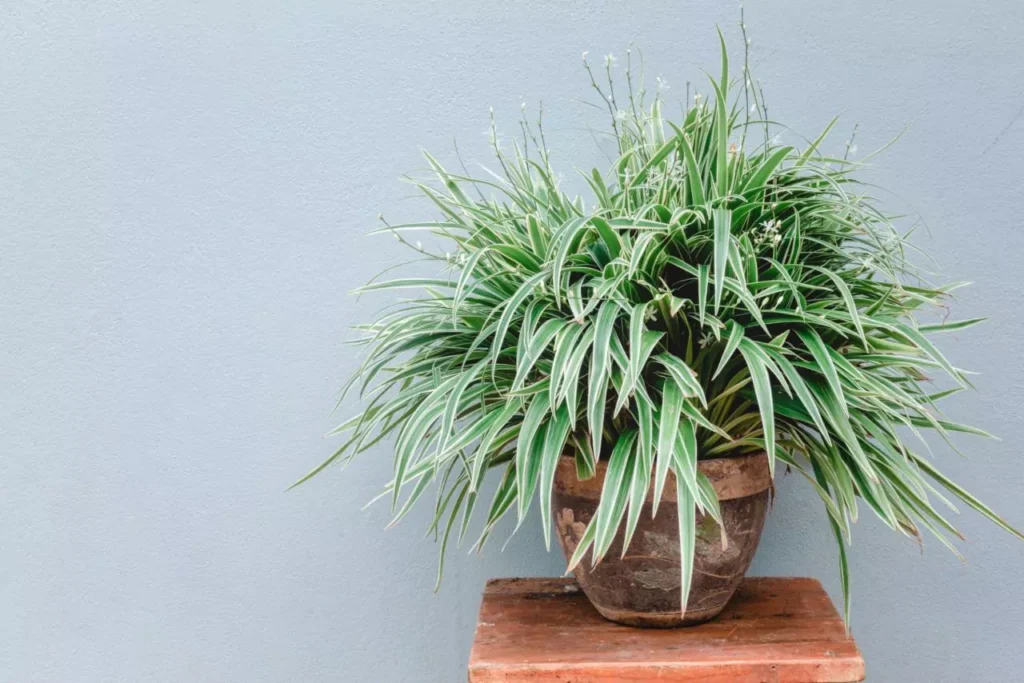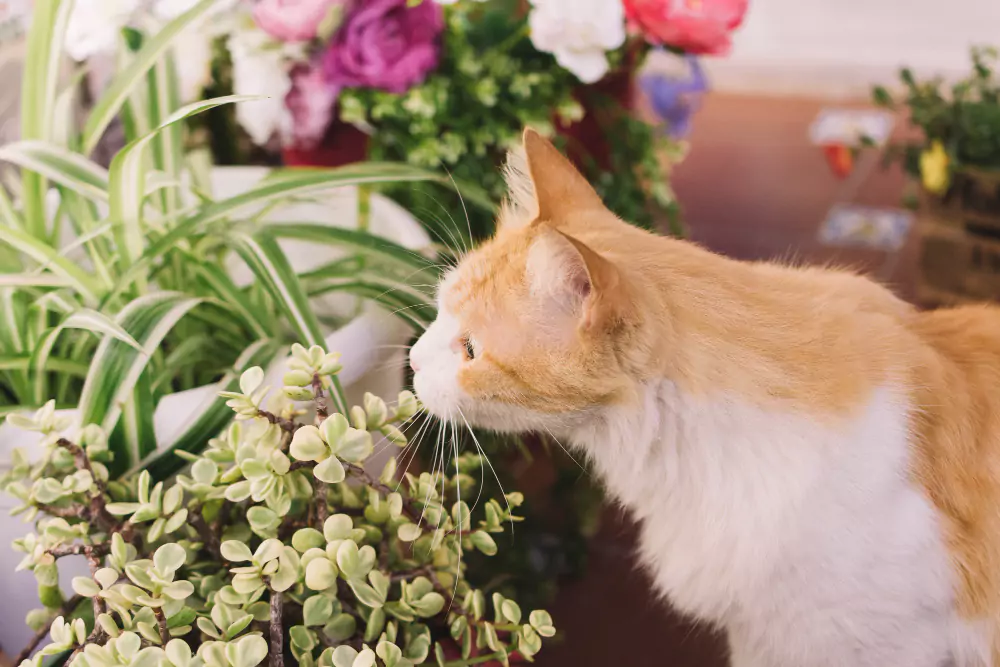Introduction: The Popularity of Spider Plants Among Cat Owners
Spider plants are a popular choice among cat owners when it comes to indoor plants. Not only do they add a touch of greenery to any space, but they are also known for their air-purifying properties and easy care. However, it is important for cat owners to be aware that spider plants can be toxic to cats. This can be a cause for concern, as many cat owners want to ensure the safety and well-being of their furry friends.

The Toxicity of Spider Plants for Cats: Myths vs. Facts
There are many myths surrounding the toxicity of spider plants for cats. Some people believe that spider plants are completely harmless to cats, but this is not entirely true. While it is true that spider plants are not as toxic as some other common houseplants, they do contain chemical compounds that can be harmful to cats if ingested in large quantities.
Understanding the Chemical Composition of Spider Plants and Their Effects on Cats
Spider plants contain chemical compounds such as saponins and glycosides. These compounds can cause gastrointestinal upset in cats if ingested. Symptoms may include vomiting, diarrhea, and loss of appetite. The severity of these symptoms depends on the amount of plant material ingested and the individual cat’s sensitivity.
Symptoms of Spider Plant Poisoning in Cats: What to Look For
If your cat has ingested spider plant material, there are several symptoms you should look out for. These may include vomiting, diarrhea, lethargy, and loss of appetite. In severe cases, cats may experience difficulty breathing or seizures. It is important to monitor your cat closely if you suspect they have ingested spider plant material.

First Aid Measures for Cats Exposed to Spider Plants
If you suspect your cat has ingested spider plant material, it is important to act quickly. One first aid measure you can take is to induce vomiting. This can help remove any remaining plant material from your cat’s system. Another option is to administer activated charcoal, which can help absorb any toxins that may have been ingested.
When to Seek Veterinary Care for Your Cat After Ingesting Spider Plants
In some cases, spider plant poisoning can be serious and require veterinary care. If your cat is experiencing severe symptoms such as difficulty breathing or seizures, it is important to seek veterinary attention immediately. Additionally, if you are unsure of the amount of plant material ingested or if your cat’s symptoms worsen, it is always best to consult with a veterinarian.
Preventing Cat Exposure to Spider Plants: Tips for Cat Owners
Preventing cat exposure to spider plants is key in keeping your furry friend safe. There are several ways to do this. One option is to keep plants out of reach by placing them on high shelves or using hanging planters. Another option is to use deterrents such as bitter sprays or aluminum foil around the base of the plant. It is also important to provide cats with alternative sources of stimulation and enrichment, such as toys and scratching posts.
Alternatives to Spider Plants for Cat-Friendly Indoor Gardening
If you are a cat owner looking for cat-friendly indoor plants, there are many alternatives to spider plants that can provide similar benefits. Catnip is a popular choice, as it can provide cats with mental and physical stimulation. Cat grass is another option, as it can help aid digestion and prevent hairballs. Other cat-friendly indoor plants include Boston ferns, areca palms, and bamboo palms.
The Benefits of Indoor Plants for Cats and Their Owners
Indoor plants offer numerous benefits for both cats and their owners. They can help improve air quality by removing toxins from the environment. This can be especially beneficial for cats who spend most of their time indoors. Additionally, indoor plants can help reduce stress and create a calming environment for both cats and their owners.
Conclusion: Keeping Your Cat Safe and Happy Around Indoor Plants
While spider plants can be toxic to cats, there are many ways to keep your furry friend safe and happy around indoor plants. By understanding the risks and taking preventative measures, cat owners can enjoy the benefits of indoor gardening without putting their pets at risk. It is important to be aware of the symptoms of spider plant poisoning and to seek veterinary care if necessary. With proper care and attention, both cats and their owners can enjoy the beauty and benefits of indoor plants.